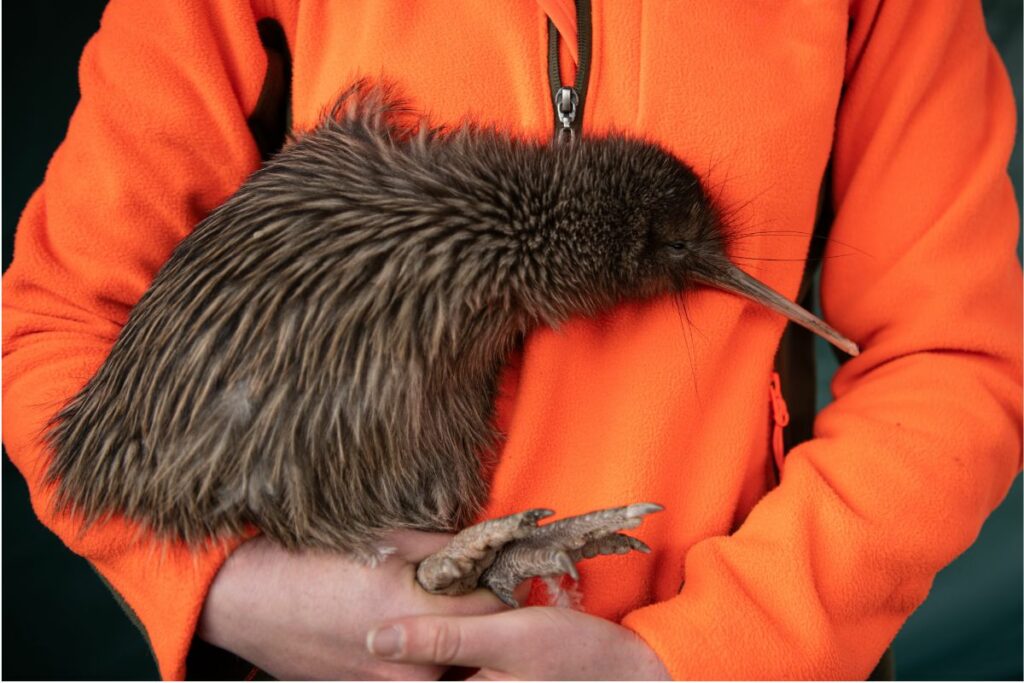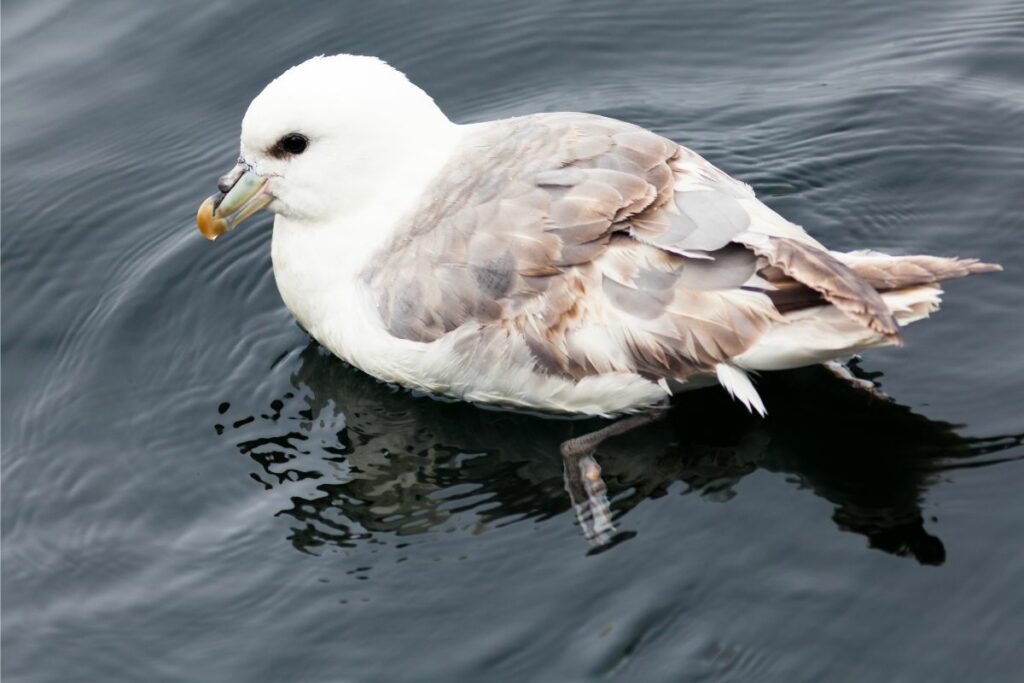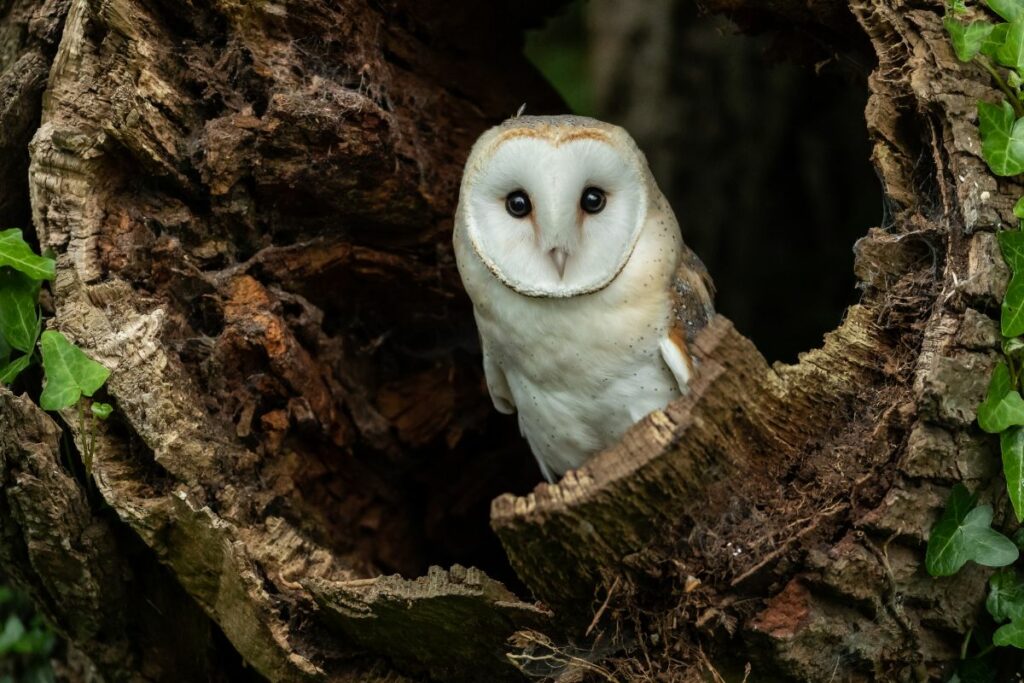As an Amazon Associate, we earn from qualifying purchases with no additional costs for you.
Birds have a sense of smell, although, for many years, people thought this was not the case, or at least was not an important sense in the bird world.
Wild birds, often perceived as relying mainly on vision and hearing, possess a sense of smell. This varies by species; some, like vultures, use it to locate carrion. Research shows that even smaller birds utilize smell for navigation and finding food, challenging old beliefs.
Some bird groups have a better-developed sense of smell than others. Read further below to learn which birds have the best sense of smell and the importance of olfaction and other senses in a bird’s survival.
TIP: If you want to check out the best pair of binoculars for bird watching, we recommend a pair of waterproof and fog-proof 8 x 42 binoculars like the Celestron – Outland X 8×42 Binoculars (Amazon link).
Do Wild Birds Have A Sense Of Smell?
Experiments have shown that birds can smell. Some birds, such as the Turkey Vulture, have a particularly sensitive olfactory sense. This is evident by the presence of a large olfactory bulb in the brain. This is the part of the brain that transmits the sense of smell to the rest of the brain to be interpreted.
Watch this interesting video from the Curiosity Desk for an explanation of this topic:
Since Turkey Vultures have such good smell, a company has even added a chemical called mercaptan to their oil pipelines. The way it works is if there was a leak along the pipeline, the vultures would sense it and congregate nearby.
The mercaptan smells like decaying flesh, so it makes sense that the birds would be attracted by the smell, thinking there was a carcass in the area. People then scan the area to see where the vultures are and can then find and fix the leaking pipe.
Other birds also have a highly developed sense of smell. For instance, the Kiwi of New Zealand and oceanic birds that live on the oceans.
The Kiwi
The Kiwi is a bird that is odd-looking and does not look much like a bird. The Kiwi is a flightless bird that is only found in New Zealand. The bird has a long beak with nostrils on the tip.
It has the second biggest olfactory bulb of all birds, and it uses its sense of smell to find food in the soil. Their eyesight, unlike their sense of smell, is not that good. This is quite unusual because birds normally have very good eyesight. Instead, the Kiwi relies on other senses.
The bird finds food beneath soil and leaf litter. It can do this because of its olfactory sense. It also has sensory pits on the tip of the beak that detect vibrations that prey make.
Oceanic birds
Petrels, fulmars, shearwaters, and albatrosses are seabirds that do use smell to locate food. Fulmars are thought to smell items from at least 20 miles away. They feed on plankton, squid, and fish in the ocean. The tube-nosed seabirds fly over large areas of the ocean.
They use their well-developed olfactory senses to navigate and to locate food items. It is thought that chemicals such as dimethyl sulfide, released from phytoplankton, help these birds to locate food-rich areas in the ocean.
TIP: Knowing how to spot the birds in your yard is key to enjoying visits from your winged friends as much as possible! The best sources are trusted books, I recommend using the following (Amazon links):
– National Geographic Field Guide to the Birds of North America
– National Audubon Society Birds of North America
How Do Birds Use Their Sense Of Smell?
Clearly, species like vultures, kiwis, and seabirds use smell to help them locate food. Birds use smell to find food, but some species also use smell in courtship as mating signals. Birds smear the preen oil from their uropygial gland over their feathers.
The odor of this oil depends on bacteria in the gland. The bacterial fauna and subsequent odor of the bird can even impact how successful they are in reproducing.
It is also believed that olfactory cues can help birds to locate their nests within a colony of thousands of nesting birds. Smell is useful for birds that nest underground. For instance, the European Storm-Petrel, which uses smell to find its burrow.
Odor cues are important in these birds in recognizing siblings and in finding where their home is. The chicks have to return to the burrow (nest) to be fed.
Thus, it makes sense that a heightened sense of smell and recognition of smell are very important in letting the storm-petrel chicks find the correct burrow so that they can be fed.
Other seabirds, like the Antarctic prions, could recognize the odor of their mate. This is further evidence that smell is of more significance for birds than we have previously realized.
Vision Is An Important Sense For Birds
Birds have superior vision to humans and can, in fact, see more types of colors than we can. They can even see UV light, so where we see an object of one color, a bird is likely seeing much more.
Such good eyesight is important for birds in everyday life. They use sight to find food, find nesting sites, locate water, and find a mate. Flying without hitting objects is also important. Another often overlooked benefit of good vision is being able to spot and avoid predators.
Recently, proteins inside the eyes of birds have been found to help in navigation using magnetic north. This helps birds navigate properly and follow the correct direction during migration. Vision is also important in reproduction, where some birds put on elaborate courtship displays to attract a female.
This can include a dance, song, and flashing patches of color. Some even perform a special courtship flight to impress a mate.
Is Hearing Important For Birds?
Birds do have a good ability to hear. This is important in avoiding predators, but also for detecting prey in the environment. Owls have excellent hearing, which suits them well.
While most owls are nocturnal, some hunt during the day as well, depending on food availability and the species of owl. An owl can hear a mouse rustling under snow or under leaves, so even if they are not able to see the prey, they can find it by sound.
Hearing is also important for birds because they recognize their own species by sound and sight. Bird song forms an essential part of territory defense and courtship. How well a male bird sings can indicate to a female how fit he is and, thus, influence reproductive success.
The Sense Of Taste In Birds
Birds taste different substances and have taste buds inside their mouths. The number of taste buds is variable, with some species having only about a dozen while other birds have over 300. Taste is important in letting birds know that something is toxic. This helps keep the bird safe.
Surprisingly, the Ostrich does not have taste buds at all. Scientists think this may be because the bird has a very large eye and a good sense of smell, which it can use when locating and assessing potential food items.
TIP: We know that most wild birds have the ability to hear, but how many of them have external ears? Read this guide to find out. Have you ever wondered how many bird species are in the world? Find out all the interesting aviary facts in this article.
Conclusion
Wild birds can smell, but this ability varies from species to species. Some birds, like kiwis, vultures, and oceanic species, have a very good sense of smell. This is important in finding their food. Smell is important among the tube-nosed seabirds not only for finding food but also for navigation purposes.
Other senses that are important in birds are their eyesight and hearing. They can see more colors than us, and they have good hearing, which is important in attracting a mate and for communication. Most birds have taste buds, which, along with smell, vision, and hearing, help them better survive in the wild.



